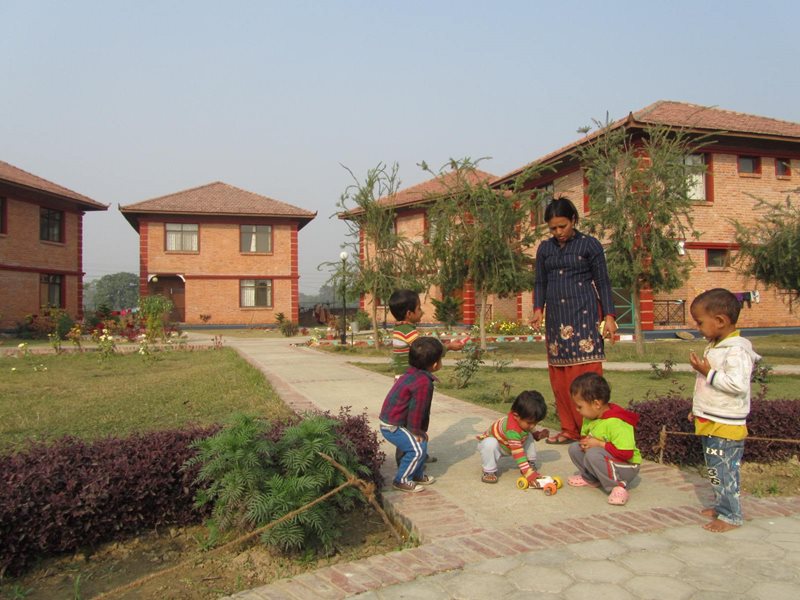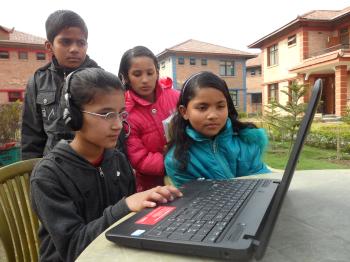Unplanned urbanisation has led to precarious living conditions

SOS Children’s Village Lumbini is located near the town of Siddharthanagar (formerly called Bhairahawa) in Rupandehi District, near the border with India and just over 20 km from the birthplace of Gautama Buddha, Lumbini. Both Buddhists and Hindus, who believe the Buddha to be an incarnation of Vishnu, visit the pilgrimage site. Siddharthanagar has a population approaching 100,000 and is a major commercial town in the region.
Besides Mount Everest, Lumbini is one of Nepal’s major tourist destinations, and tourism has brought a certain amount of employment to the region, opening up jobs in hotels, bicycle hire, or guiding tourists, for example. But the overall living conditions of the local population have not improved greatly.
Nepal has seen increased urbanisation in recent years: while in 1991 just 9.2 per cent of Nepalese lived in cities, in 2011 17 per cent did. However, in Siddharthanagar roads, communication equipment, water supply, drainage systems, and electricity are severely lacking. Growth in the region has been unplanned, leading to environmental degradation and sprawling settlements. These conditions have a detrimental effect on people’s health, which in turn can lead to high medical expenses, the inability to work and consequently increased poverty levels, most severely affecting those who are already poor and vulnerable to start with.
Children need protection – and hope for the future
Siddharthanagar’s location near the 1,740-mile open border with India also makes it a major transit point for human trafficking into India. Between 1,300 and 2,000 people are estimated to cross the border every day, and human traffickers are very rarely caught and prosecuted. The most vulnerable group are girls and women from poor backgrounds, often from ethnic minorities, with little education. In most cases, these girls are not aware of their rights and have no one to turn to for help.
The promise of lucrative employment or a more glamorous life in a big city often lures girls into trusting human traffickers. In Nepal overall, but particularly in rural areas, preference is still given to boys when it comes to providing food, education and health care. “Raising a daughter is like watering your neighbour’s garden”, goes a Nepalese saying. Many girls who are trafficked work as domestic maids in extremely tough conditions, or they end up being forced to work in brothels.
What we do in Lumbini

SOS Children’s Villages began its work in Lumbini in 2010 due to the great need for additional family-based care facilities in the region. Children who are no longer able to live with their parents can now find a loving home in Lumbini with one of 15 SOS families. In each family, the children live with their brothers and sisters, affectionately cared for by their SOS mother.
In recent years, there has been a growing need for support within the community. The SOS Family Strengthening Programme has been working to ensure that vulnerable families have access to basic goods and services such as health care and education. We also provide training and advice so that parents can become independent by generating an income to provide for their children.
Up to 80 children from the SOS Children’s Village and from the neighbourhood go to the SOS Kindergarten, where they receive early childhood education and are prepared to start school. The kindergarten also ensures that children from SOS families make friends and are integrated into the local community from a young age.
The children then go on to attend local schools together. We provide extra tuition for any children who are struggling at school. We also host a range of activities at the children’s village, including sports tournaments, dance and folk song, as well as traditional celebrations. The children also decided to form the “Lumbini Child Club” which aims to work for the welfare of children both within the children’s village and in the surrounding communities.